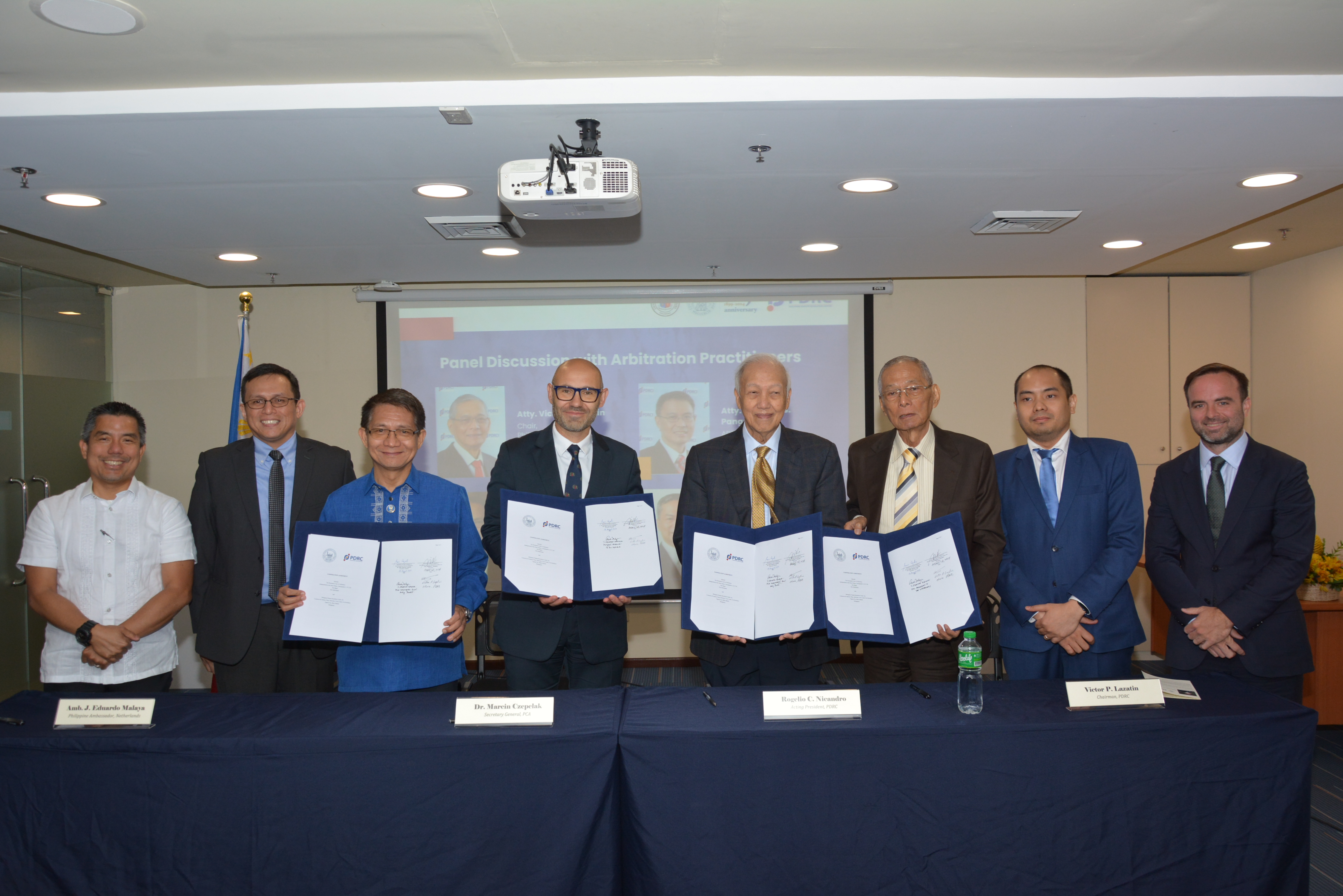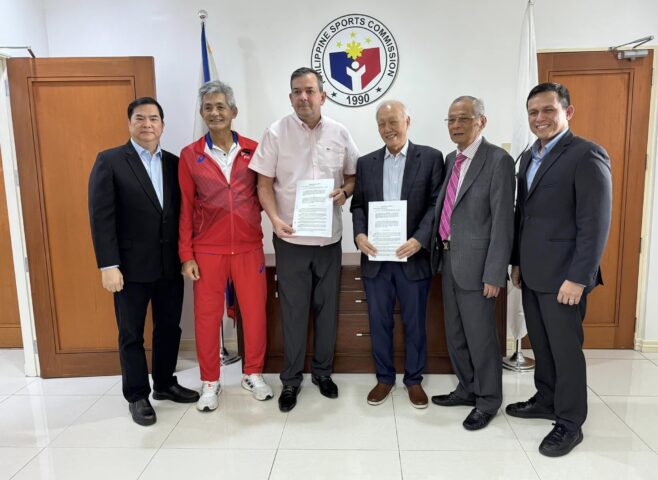
L-R: First Secretary and Consul Jarie Osias; PDRC Executive Director Arleo Magtibay Jr.; Philippine Ambassador to The Hague Amb. J. Eduardo Malaya; PCA Secretary General Dr. Hab. Marcin Czepelak; PDRC President Rogelio Nicandro; PDRC Chairman Victor Lazatin; Legal Counsel and PCA Representative in Viet Nam Neil Nucup; Legal Counsel at the PCA in The Hague Julian Bordacahar.
In pursuit of their shared objective of promoting arbitration as an effective means of peaceful dispute settlement, the Philippine Dispute Resolution Center, Inc. (“PDRC”) entered on 28 August 2024 into a Cooperation Agreement with the Permanent Court of Arbitration (“PCA”). The two organizations will collaborate to promote the resolution of international disputes through arbitration and other alternative dispute resolution (ADR) methods in the Philippines and the Southeast Asian region.
The signing ceremony was held at the headquarters of the PDRC, during the visit of PCA Secretary-General Dr. Marcin Czepelak to Manila. The PDRC was represented by its President Atty. Rogelio Nicandro, while the PCA was represented by Secretary-General Czepelak. Philippine Ambassador to the Netherlands J. Eduardo Malaya, who is concurrently the acting President of the PCA Administrative Council, its policy making board, for term 2023-2024, and Atty. Victor Lazatin, Chair of the PDRC, stood as witnesses to the signing of the Cooperation Agreement in the presence of the officers and members of the PDRCI and other members of the Philippine arbitration community.
Under the Agreement, the PCA and PDRC will, among other initiatives, collaborate towards the organization of PCA meetings and hearings at the PDRC’s facilities in Bonifacio Global City, Taguig, Philippines, as well as PDRC meetings and hearings at the PCA’s premises in the Peace Palace, The Hague, Netherlands. They will also cooperate by exchanging information and holding conferences, seminars and specialized events.
At a forum prior to the signing ceremony, PDRC President Nicandro welcomed the signing of the Cooperation Agreement, stating that “having the Philippines as a venue for hearings in PCA-administered proceedings will result in cost and time savings for local businesses and also raise the capacity and experience of local arbitration institutions and practitioners.”
For his part, Amb. Malaya remarked that the cooperation between the PDRC and PCA enhances the country’s profile as an advocate of a rules-based order. “The signing of the PDRC-PCA Cooperation Agreement raises the international reputation of the Philippines as a preferred arbitral forum, and promotes the use of arbitral institutions located in the country,” he said.
The PCA is the oldest, existing international organization devoted to the peaceful settlement of disputes, having been established in 1899 by the Convention on the Pacific Settlement of International Disputes. In operations for the last 125 years, the PCA has developed into a modern, multi-faceted arbitral institution well situated to meet the evolving dispute resolution needs of the international community. It has one of the heaviest caseloads of all international courts and tribunals, supporting in 2023 alone a record 218 registry cases, including investor-state disputes and contract-based disputes involving a state entity. The PCA is composed of 124 Member States, with the Philippines joining it in 2010.
PDRC is a non-stock, non-profit organization incorporated in 1996 out of the Arbitration Committee of the Philippine Chamber of Commerce and Industry (PCCI). It promotes and encourages the use of arbitration, mediation and other modes of avoiding or settling commercial disputes such as dispute boards, and provides alternative dispute resolution (ADR) services to the business community. It administers arbitration and mediation in specialized fields such as maritime, banking, finance, insurance, securities, and intellectual property. Its membership is composed of prominent individuals and professionals such as lawyers, former members of the judiciary, academics, architects and engineers, doctors, accountants, bankers and businessmen.

